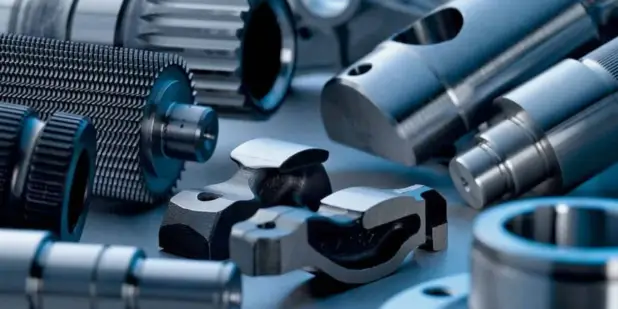Is an EAC Certificate Required for Spare Parts?
Yes, in many cases an EAC certificate or an EAC declaration is required for spare parts and components for export to the EAEU countries. When a machine is damaged, specific spare parts or components are needed for its repair.
When exporting spare parts to the EAEU states, the question often arises whether additional EAC certification is required. In this article, we will provide detailed information regarding the additional certification of spare parts.
EAC Certificate for Spare Parts and Components
An EAC certificate is a conformity document that confirms compliance with TR CU standards of the Eurasian Economic Union. EAC approval is required for the export of products sold in the EAEU countries, including Russia, Kazakhstan, Belarus, Armenia, and Kyrgyzstan.
The EAC certificate indicates that a product meets legal requirements for safety and environmental protection. It is mandatory for a variety of products. Without a valid EAC certificate, products cannot be sold in the EAEU states.
Obtaining an EAC certificate typically requires conformity assessment procedures, such as testing, inspections, or certification audits by accredited bodies. The exact requirements vary depending on the product category and applicable technical regulations.
Mandatory EAC Certification of Spare Parts
By the decision of the EAEU Commission N294 dated December 25, 2012, regarding the procedure for the import of goods into the customs territory of the EAEU states, binding conditions for the EAC certification of spare parts and components are established.
Products defined as spare parts and intended for maintenance or repair by the manufacturer, importer, or representative of the manufacturer are exempt from the regulations of decision N294.
Furthermore, the individual provisions of the Machinery Directive must be considered separately. According to the regulations of TR CU 010/2011 on the safety of machinery, equipment, and mechanisms, spare parts are not subject to certification.
The approval of machinery and equipment can be carried out in the form of certification or declaration. Conformity certification for machinery, equipment, and installations is conducted in accordance with the TR CU guidelines of the Eurasian Economic Union.
The following guidelines are relevant for the approval of spare parts:
- TR CU 010/2011 – Machinery Directive
- TR CU 011/2011 – Lift Safety Directive
- TR CU 031/2012 – Agricultural Machinery Directive
- TR CU 032/2013 – Pressure Equipment Directive
- TR CU 018/011 – Transport Directive
- TR CU 012/2011 – ATEX Directive
Most machines consist of several components, and it must be checked before delivery whether individual shipments need to be certified separately. It is possible that individual components are subject to EAC certification within the scope of delivery.
EAC Accompanying Documents for Spare Parts
For the import of spare products and components, the EAC accompanying documents and the EAC approval of the overall product (originally conducted EAC approval in the form of EAC certification or EAC declaration) are required.
Furthermore, it must be clearly demonstrated that the imported products are spare parts and that these products are exclusively used for maintenance or repair.
The evidence must be provided by submitting documents and/or records:
- Proof of repair necessity
- Proof of maintenance necessity
- Proof of defective production
- Order of spare parts
- Warranty obligations
If the products imported as spare parts are resold in the EAEU states, the EAC certification or EAC declaration for these products must be conducted in accordance with the technical regulations of the EAEU states.
An EAC operating manual must include the following information:
- Information on the structure of the machine
- Information on the operation of the machine
- Information on safety measures
- Instructions for commissioning the machine
- Information on packaging options
- Information on transport options
- Instructions for installation of the machine
- Instructions for disposal of the machine
- Instructions for repair of the machine
- Instructions for storage of the machine
- Technical specifications of the machine
- Instructions for maintenance of the machine
- Service life of the machine
- Personnel information
- Personnel warnings
- Hazard warnings
EAC Marking of Spare Parts
The certified products must be marked with the conformity mark of the EAEU countries. The abbreviation E-A-C stands for Eurasian Conformity. The EAC marking must be affixed to each individual item, packaging, and accompanying documentation.
The EAC marking must meet the following requirements:
- Good readability
- At least 5 mm
- Monochrome coloring
- Color contrast to the surface
Marking of Spare Parts for Machines
The spare parts for machines, equipment, and installations must be marked in accordance with the technical regulations of the EAEU states.
The following information must be affixed to the machine:
- Company name of the manufacturer
- Brand name of the manufacturer
- Manufacturing date of the machine
- Warning labels and signs
- Designation of the machine
- Model of the machine
- Brand of the machine
- Type of the machine
If it is impossible to affix the required details and information to the spare parts of machines and installations accordingly, these details and information must be included in the operating manual of the product.
Authorized Representation
For the conduct of EAC certification of goods from foreign manufacturers, an authorized representation in the EAEU countries is required. The authorized representation is necessary for all foreign producers who do not have a branch in the EAEU states.
The conduct of approvals can only be carried out by companies with their registered office in the EAEU member states. The authorized representative represents the interests of the foreign manufacturer in the conduct of EAC certification.
Validity Period of EAC Certificates
The validity period of EAC approvals for spare parts and components varies depending on the applicable TR CU directive, approval scheme, and type of production.
There is a distinction between EAC certification or EAC declaration for series production, series manufacturing, batch deliveries, and individual deliveries. The average validity period of EAC approval documents ranges from 1 to 5 years.
Duration and Costs of EAC Certification
The conduct of EAC certification for various product groups is generally a lengthy and complicated process. The approval processes for different products are determined by the regulations of the TR CU guidelines.
The costs of EAC certification generally depend on several factors. The costs of EAC approval depend on the number of necessary product tests, product complexity, and the corresponding TR CU/EAEU regulations.
The exact costs of EAC certification and the duration of certification are always calculated on a product-specific and project-related basis. The costs of EAC certification can only be determined through a corresponding EAC assessment.


